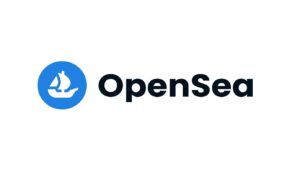
Recent developments have stirred conversations within the NFT community. Let’s delve into the intricacies of OpenSea.io’s journey, exploring both its triumphs and the shifting landscape it navigates.
The NFT movement witnessed a seismic shift with OpenSea.io’s ability to amass over $100 million in fees from notable collections like Bored Apes, Mutant Apes, BAKC, and Otherside NFTs. This feat underscores the platform’s pivotal role in the NFT economy, facilitating transactions that shape the digital art and collectibles space.
Yuga Labs, the brains behind the Bored Ape Yacht Club (BAYC) collection, has made waves with their decision to remove support for OpenSea’s Seaport protocol starting February 2024. This decision comes as a response to OpenSea’s choice to discontinue mandatory royalties enforcement for existing collections. The Yuga Labs collections, contributing nearly $5 billion in all-time traded value on OpenSea, with BAYC accounting for $2 billion alone, bring to the forefront questions about the future dynamics between creators and platforms.
Shifting Royalty Paradigm: OpenSea’s Controversial Move
OpenSea.io’s choice to disable mandatory royalties enforcement has sparked both discussion and criticism. While existing collections will continue to have royalties enforced until February 2024, the move to dismantle the Operator Filter tool has drawn mixed reactions. OpenSea CEO and co-founder Devin Finzer explained that creator fees will persist, but the method of enforcement will change. Prominent investor Mark Cuban expressed concerns, stating that forgoing royalty collection undermines trust and industry integrity.
OpenSea.io’s evolution extends to its fee structure, particularly for OpenSea Pro. With a new fee of 0.5% on listings and offers, the platform aims to align its revenue model with the dynamics of active traders. The introduction of this fee brings OpenSea Pro’s policies in line with certain creator royalties thresholds. This adjustment could potentially reshape how active traders engage with the platform and impact the broader NFT trading landscape.
The NFT landscape remains in a state of continuous evolution, with platforms like OpenSea.io at the forefront of shaping its trajectory. As OpenSea.io adapts its strategies and policies, it is indicative of the broader challenges and opportunities within the NFT space. The shifts in royalty enforcement and fee structures reflect the complex interplay between creators, platforms, and traders.
OpenSea.io’s journey embodies the dynamic nature of the NFT landscape. As the platform fine-tunes its approach to royalties and fees, it sparks conversations that reach beyond its interface. The story of OpenSea.io is a reflection of the broader NFT narrative – one that embraces innovation, adaptation, and the collective pursuit of reshaping how we engage with digital assets.
As NFT enthusiasts and participants, staying attuned to these shifts is imperative. It invites us to explore the evolving dimensions of the NFT economy and the role platforms like OpenSea.io play in shaping its course.











